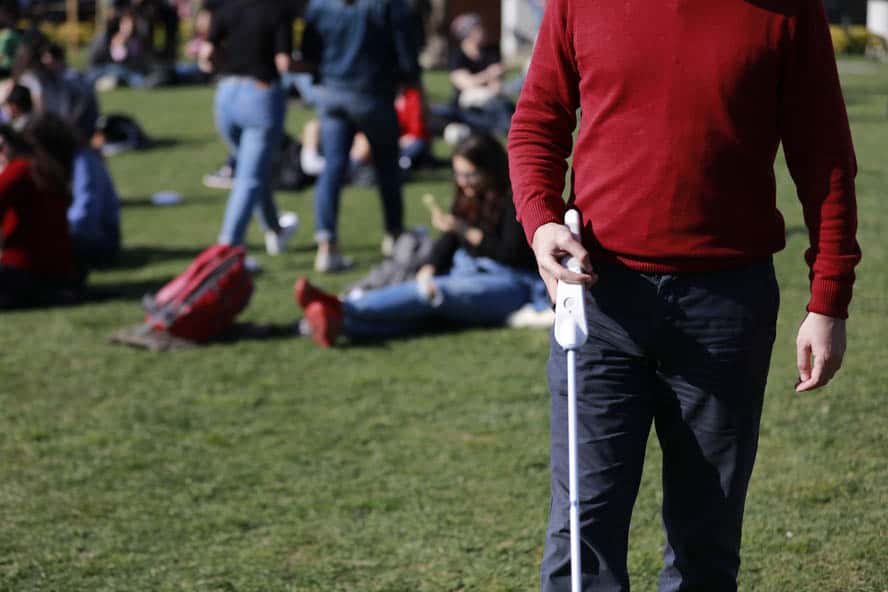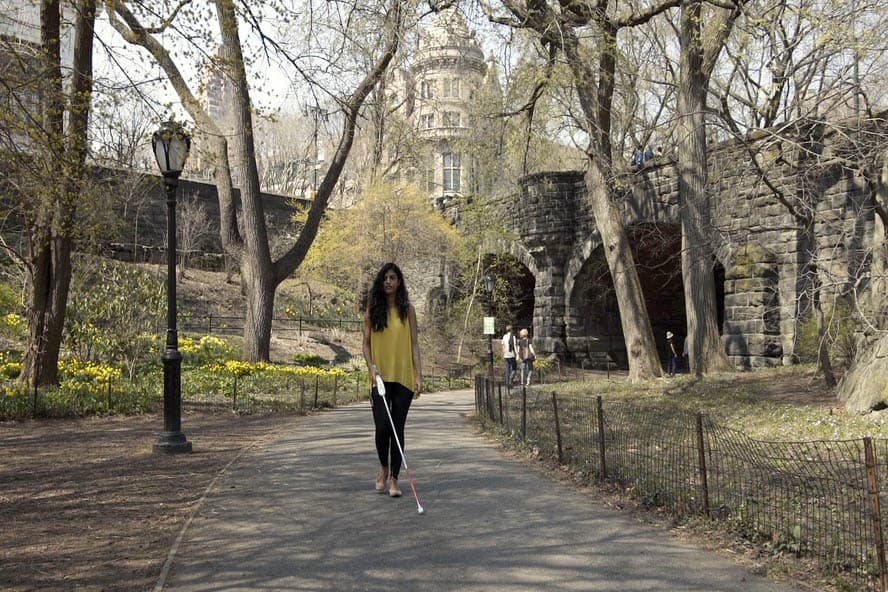Innovative smart cane joins accessibility programme to improve lives of visually impaired people

WeWALK, an innovative smart cane designed for people who are blind or with low vision, has joined Microsoft’s AI for Accessibility programme to accelerate WeWALK’s mobility capability.
This programme will see WeWALK develop and validate a human behaviour model for visually impaired users and create a Voice Assistant, providing the right mobility information when needed and allowing for greater control of the WeWALK mobility experience.
Microsoft’s AI for Accessibility £19.3 million five-year programme is aimed at harnessing the power of artificial intelligence (AI) to amplify human capability for the more than one billion people around the world with disabilities. Through grants, technology, and AI expertise, the programme aims to accelerate the development of accessible AI solutions and build on recent advancements in Microsoft Cognitive Services to help developers create intelligent apps that can see, hear, speak, understand and interpret people’s needs.
WeWALK’s new Voice Assistant will be released later in 2020 and will have immediate usability benefits, improving the user’s confidence as they mobilise, the company emphasises.
The challenge that WeWALK seeks to overcome is to make the assistant truly ‘smart’ and dynamic, where it will effectively categorise and deliver on the user’s commands in a host of different environments.
In addition, WeWALK’s human behaviour model is due for release in 2021 and, according to the company, is of “significant importance” as currently there are no accurate models for how a person who is blind moves and how their mobility holistically evolves, especially after receiving orientation and mobility training. As a result, healthcare, government, and mobility trainers cannot effectively track how a person who is blind mobilises and whether or not intervention has had benefit.
By using WeWALK’s built-in IMU (inertial measurement unit) sensors, including the gyroscope, accelerometer, and compass, as well as data collected from a connected smartphone, the model can be implemented and expanded organically through daily usage. The first stage will be rigorous data collection and user testing, followed by data manipulation and classification to ensure that optimum reliability and system usability can be achieved.

Commenting upon WeWALK’s entry into the program, Jean Marc Feghali, R&D Lead at WeWALK, said: “By working on these two objectives, WeWALK can set the standard for visually impaired mobility for both the individual user and the organisations that support them.
“We are now rigorously collecting mobility data with novel experimentation, validating our work by continuously engaging our users to ensure an exceptional product powered by Microsoft’s best. Being a part of the Microsoft family truly excites us, bringing us closer to mobility trainers, researchers, and the global visually impaired community.”
WeWALK’s ergonomic attachment fits on top of any white cane and, using its inbuilt sensors, touchpad, and voice interface, WeWALK can: detect above-ground obstacles, and pair with the WeWALK Smartphone App using Bluetooth to access connected mobility services, including navigation, exploration, and public transport, all controlled through the WeWALK smart cane.
With the power of Microsoft AI, WeWALK’s impact will be wide-reaching, as Kürşat Ceylan, WeWALK’s co-founder & CPO explains: “As a blind person from birth, I know that it is very important to get the right habits of using a cane from a young age. It is amazing to see how WeWALK can enhance this aspect of our lives with high tech, making training and orientation more effective. I believe that the smart cane will be a symbol for the fully independent journey people who are blind or with low vision.”

